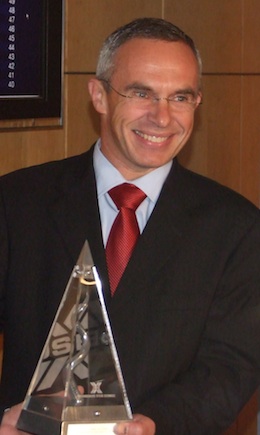 Vodacom CEO Pieter Uys has denied accusations that the cellular group colluded with rival MTN to hike interconnection fees months before Cell C began operating in an attempt to stunt the then-new player at the start.
Vodacom CEO Pieter Uys has denied accusations that the cellular group colluded with rival MTN to hike interconnection fees months before Cell C began operating in an attempt to stunt the then-new player at the start.
Politicians, including ANC MP Johnny de Lange and Independent Democrats leader Patricia de Lille, have accused the two incumbent cellular network operators of raising the fees to make life difficult for Cell C, which was granted SA’s third cellular licence at the beginning of the decade.
Interconnection fees are the rates the mobile operators charge one another and other operators to carry calls on their networks. They are set at a high R1,25/minute in peak times.
“There are those who say MTN and Vodacom got together, as per Johnny de Lange, in smoke-filled rooms and on the golf courses. But that is definitely not what happened,” says Uys, pictured.
“What happened was, initially, when we didn’t know the market size and what the costs were going to be, we had experts from Australia come over to advise Telkom, Vodacom and MTN how the interconnect regime should be structured,” he says.
At the time, there was disparity in the mobile interconnection rate — Telkom paid a different rate to the mobile operators than the rate the mobile operators charged one another, and this created an arbitrage opportunity, Uys says. “You can’t have that differential.”
As a result, the parties agreed that mobile termination rates to all players would be exactly the same. “It had nothing to do with Cell C coming in.”
Uys says Vodacom is opposed to Cell C’s proposal that an interconnection rate regime be introduced that favours Cell C. Lars Reichelt, Cell C CEO, proposed in parliamentary hearings this week that smaller players, including Cell C, benefit from an asymmetric interconnect.
Reichelt wants interconnection rates reduced to 75c/minute day and night. But he wants a dispensation favourable to Cell C where it would pay just 65c/minute for off-net calls originating from its network.
But Uys says asymmetry usually only applies to new market entrants. Cell C has been operating for the best part of a decade. “After eight years, it’s not a start-up anymore [and] there could be any number of reasons why it has such a small market share after so many years.” — Duncan McLeod, TechCentral
Subscribe to our free daily newsletter




